What's your biggest fear when you go to the hospital?
What is the most frightening thing about going to the hospital? I think what scares people the most is nothing more than thinking that they are not sick, only to find out that they are really sick when they go to see the doctor. Originally, I thought that my illness was only a minor one, but when I went to the hospital for a check-up, I found that it turned out to be a serious illness.
Take the example of my relatives around me, my uncle originally stomach has been bad, all day stomach acid stomach bloating uncomfortable, he has not been going to the hospital for examination, stubbornly believe that he is a simple stomach disease so dragged two years, finally went to the hospital for examination, only to find out that the original is stomach cancer.
At that time, the examination was gastroscopy, and then a biopsy was taken, and the tumor was confirmed to be malignant after the biopsy. At that time, the size of the tumor under the gastroscope was not too big, and the family still had hope that the tumor was small and there would be no big problem if they did a surgery.
As a result, when I went to the operating table, I opened the abdominal cavity and saw that the tumor had already penetrated the stomach wall, and it was already very tightly adhered to the pancreas, and it had also metastasized, so the surgery wasn't done, and I started to treat it conservatively again.
I think the people who visit the doctor or the family members who accompany them, in the process, there is nothing more frightening than this. Originally thought I just had a cold, the result of a checkup found leukemia. Originally thought I just grew a cyst, the results of a checkup found that the original is a malignant tumor, ups and downs, the spiritual blow, the gap between heaven and hell, nothing more than this.
This is an interesting question, and everyone may have their own answer. I remember when I was a child, I was most reluctant to go to the clinic to see a doctor, because my greatest fear was that the doctor would give me an injection, and when I thought about it, I felt that my buttocks hurt, so I always cursed that doctor in my heart. When slowly I grew up and I became a doctor, I understood him more and more and I should thank him. Back to the question, what do people fear most? I have summarized it and it may contain the following situations.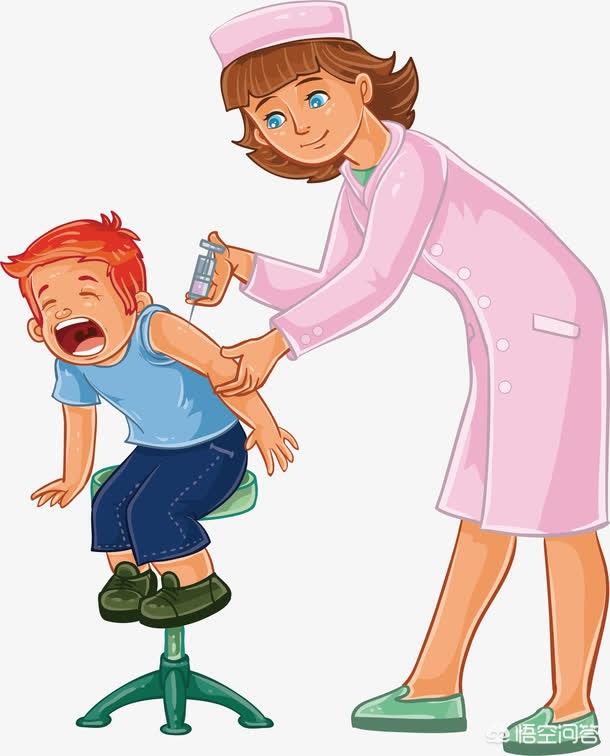
scenario oneThe patients themselves had no obvious discomfort or the discomfort was very mild, or even just went to the hospital for a physical examination, and after going to the hospital and going through the doctor's questioning, physical examination, laboratory examination or imaging examination, they found that they had got a very serious disease, such as malignant tumors or other intractable diseases. If the disease is in the early stage, it is fine, but if it is in the late stage, it will be very difficult for us. In the hospital, Dr. Zhang has seen too many tears of sadness of this kind.
Second scenarioWhen patients go to the hospital for treatment, they may have a better understanding of their situation beforehand, so they know roughly what kind of disease they are suffering from or the prognosis of the disease. However, in the course of treatment, some unexpected situations, or even disabling and fatal situations occur, we will be very difficult to accept. For example, we originally thought that it was only digestive discomfort to go to the hospital, but it turned out to be myocardial infarction. Sometimes it is emotionally difficult for the patients and their families to accept, but this situation does exist.
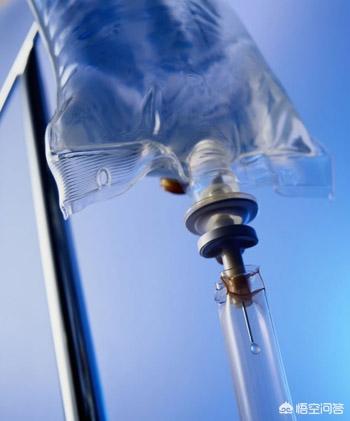
Third scenarioIt is about the cost of treatment. It cannot be denied that the financial burden of seeing a doctor can sometimes be very heavy for a family, and there used to be a folk saying that "when an ambulance rings, a flock of sheep is raised in vain". In the face of disease, we actively treat, but for the vast majority of families, the cost of medical treatment may also be a great burden. But now the national medical policy is getting better and better, and the burden of medical treatment is decreasing, thanks to the good times and good society.
Fourth scenarioThe problem is that it is difficult to see a doctor. Nowadays, the big public hospitals are overcrowded, whether it is for medical consultation or payment or examination, all need to queue up, and even the entrance into the hospital needs to queue up, especially when there is a serious traffic jam with cars and no parking space. So the thought of going to the hospital gives many people a headache. Dr. Zhang here to give you a trick, in advance online registration, at the same time take a taxi to the hospital, so that all the difficulties effectively solve part of the problem.
In short, all of us do not want to go to the hospital, but all of us cannot leave the hospital. I hope that we all have a healthy lifestyle in general and try not to get sick and get sick less often.
If you think these science knowledge written by Dr. Zhang every day is not bad, if it is convenient and does not affect your life, please vote for Dr. Zhang, you can vote 5 times a day. Click on Dr. Zhang's avatar to see the poll!
Went to the hospital, the most afraid of the pocket inside the bill is not enough, the other is afraid of the hospital requirements back and forth, unnecessary this check that check, can let the patients and their families to run to the human life fainting!
😹😹😹😹😹😹😹😹
When you work in a hospital for a long time, you meet all kinds of people. What is the biggest fear when you visit a hospital?
Doctors and patients share the same goal most of the time, which is to figure out what's wrong and then figure out how to fix it.
Patients and families sometimes think differently.
Once, a pair of young parents in the middle of the night with a 3-year-old child to the hospital to see the emergency room, the child coughing, a little phlegm, no fever, and other conditions are okay. But the child's mother to see the child coughing, the heart is difficult, and constantly to the doctor to repeat the child's cough, cough phlegm, can not cough phlegm, while worrying about the child will get pneumonia, so small resistance is not good, in case of aggravation of how to do? If the child has a long or short, I am really sorry for the child ...... and then asked the doctor, how to do? The doctor said, look at the child's current situation, you can not have to be hospitalized, prescribe some medicine, take medication at home. If the condition worsens, then come back to the hospital. If you want to be hospitalized, you can also, but also take medication, and there are other patients in the hospital, may and the child mutual infection, but aggravate the child's condition.
This young mother was even more overwhelmed when she heard the doctor say that. Trying to turn to the father of the child, the father said, "See, I told you the doctor would say that, you didn't believe me, now what are you going to do about it?
As parents of children, they are all worried about their children's condition and hope for their children's early recovery. However, while some people are able to look at it calmly, others have completely lost their minds and are unable to prioritize.
All of this is normal, and who can stay out of it when dealing with their own children?
In fact, there's an old saying that concern is a good thing.
It's right to care about your children, but caring too much, in turn, puts you and your family in a quandary.
What are you afraid of, other than what the field says you're afraid of?
The most afraid of high consumption, such and such a machine, they do not care about your big or small illnesses of a class first through the machine, and then it is a prescription, regardless of the size of the disease first take a big bag of medicine, you say terrible?
Thanks for the invite!
What is the biggest fear of going to the hospital? Different people have different worries, the most afraid of their own complex condition is a terminal disease; economic conditions are not very good, the most afraid of spending a lot of money on treatment; patients are the backbone of the family, the most afraid of their own illness did not continue to earn money to support the family; some are afraid of encountering a doctor is not good; some are afraid of the operation; there are also afraid of the postoperative recovery of the bad! In short, different people have different points of worry, but the same is that all the fear, fear, worry is due to the disease, so no matter how afraid, must be set up to resist the disease determination and courage.
The greatest fear is that I have an incurable disease!
I believe this is the thing that every patient and their family members are most afraid of when they go to the hospital, especially for some patients with more complicated conditions and more serious symptoms. All people hope that after entering the hospital they can get fast and effective treatment, or quickly discharged from the hospital, continue to start their own good life, but things are always not as good as they should be, some people's most feared thing will still happen, get an incurable disease, and some even do not have much life left.
Therefore, the disease will not come to you just because you are afraid of it, and the incurable disease will not let you go just because you are afraid of it. Instead of being afraid of this at some future date, you should start to pay attention to your health from now on, have a good rest, exercise more, and have a healthy diet! That way you can keep yourself from going to the hospital less or not at all.
My biggest fear is that I won't have the money to pay for my medical bills.
Although health insurance now reimburses a large portion of medical expenses, we all know that health care is not cheap all over the world, only that some countries reimburse more, some reimburse less, and some have free health care.
Therefore, to go to the hospital to see a doctor, many people are most afraid of spending too much, they do not have enough money to afford the medical expenses, did not pay the medical expenses, it means that many therapeutic measures and treatments have to stop, it means that there is still a chance to save the life, will have to watch him lose!
The biggest fear is that I won't be able to continue to support myself and my family.
Some people go to the hospital very suddenly and without warning, such as sudden illness, accidents, car accidents, natural disasters and so on! If the hospitalized patient is still the breadwinner of the family, his greatest fear is undoubtedly whether he will be able to earn enough money to support himself and his already difficult family in the future!
Clinically there are very many such things, the pillar of the family suddenly collapsed, for the already overstretched family, is undoubtedly worse, many strong man in the hospital bed shed tears of sadness, so their greatest fear is not the disease itself, but the fear of their own behind the family no one to take care of!
Different people have different points of fear, different people have different ways of dealing with the consequences of going to the hospital, some can bear the pain and pressure brought about by the disease itself and the treatment of the disease, while others find it hard to bear! So, no matter what class we are in, no matter what stage of life we are in, no matter whether we are poor or rich, don't over-consume your body, health is really more important than anything else, all valuable!
Encountering irresponsible doctors
When you register with the director for a colonoscopy, the director writes you a hospitalization notice, followed by an extern intern who handles the admission procedures, etc. When doing the colonoscopy, the attending doctor, intern, or even a nurse who has been in the hospital for a short time replaces the chief doctor to do the colonoscopy. If the head doctor is standing next to him, he will have an anesthesiologist numb him out, and when he wakes up early, he will hear the head doctor instructing the intern how to do the colonoscopy. It's a bit of a hangman's tale.
Thanks for the invitation!
Many patients are afraid to visit hospitals. Some are 'afraid to go to the doctor', some have the 'white coat effect', and some just 'don't like to smell the disinfectant'. As a doctor, I spend more time in the hospital every day than at home! However, I also dread visiting certain departments.
First, I was afraid to visit the dentist.
Years ago I had 4 wisdom teeth and these 4 'guys' caused me to go to 3 hospitals and 3 dentists to have my teeth extracted 3 times.
- The first time was pretty moderate, the oral surgeon took a look at my upper right wisdom tooth and started extracting it without taking any pictures. The extraction was done under anesthesia and naturally it didn't hurt. However, as I watched the doctor wearing a mask and banging on my mouth with a tool, my palms became sweaty.
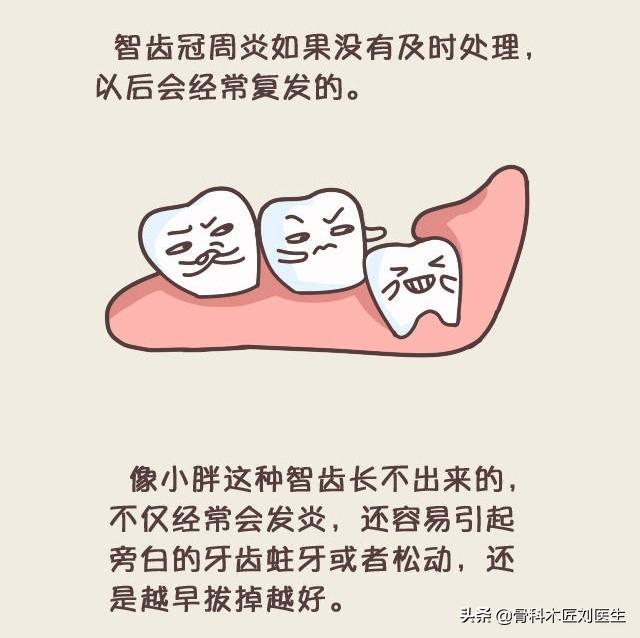
- The second tooth extraction experience was the most painful! Pictures were taken that showed a small hook on my lower right wisdom tooth, which is the worst kind of tooth to pull! You need to use a tool to saw the tooth in half. That day, the dentist changed tools and went back and forth. I watched with my eyes open at first, and then simply closed them. I just felt my head being shaken so much that it took 50 minutes to extract 2 teeth! There were several stitches! Then, after the anesthesia the pain was unbearable and the ibuprofen didn't work, so I ran to the emergency room and got prescribed Lovenox.
- The third extraction was relatively comfortable this time due to the previous two experiences and the fact that only one tooth was extracted this time.
Some time ago, I went to our hospital ophthalmology department for glasses, and found that the myopia of this eye is already as high as 600 degrees. The ophthalmology colleague contacted us to do a fundus examination, and the fundus examination requires pupil dilation. This pupil dilation can be really difficult! Normal people's pupil is only about 3 millimeters, and after dilating the pupil I looked in the mirror, my pupil is estimated to be seven or eight millimeters or even a centimeter. So much so that I was particularly 'photophobic' and couldn't open my eyes once I left the hospital after the ophthalmology appointment.
Several of these experiences led to some fear of dentistry and ophthalmology.
I think the scariest thing is the "unmitigated disaster".
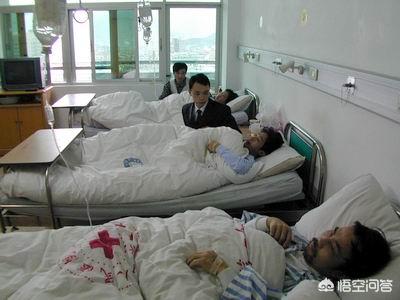
Far from it, let's talk about a recent patient to be discharged, she is a Guangdong, at that time was accompanying one of her sister to see the doctor for treatment, during her sister's hospitalization and treatment, a chance to check in with her, talked to her a few words, according to her abnormal symptoms, suggested that a checkup to check out, she did not think of it agreed, and finally the results of the examination came down, she was baffled.
Because from the results of the examination, her condition was much more serious than her sister's. Strangely enough, she, who had only mild symptoms, felt her symptoms getting worse soon after the examination and eventually fell ill in bed as well, and called her relatives to come over to take care of the two sisters, as she was also undergoing surgical treatment.
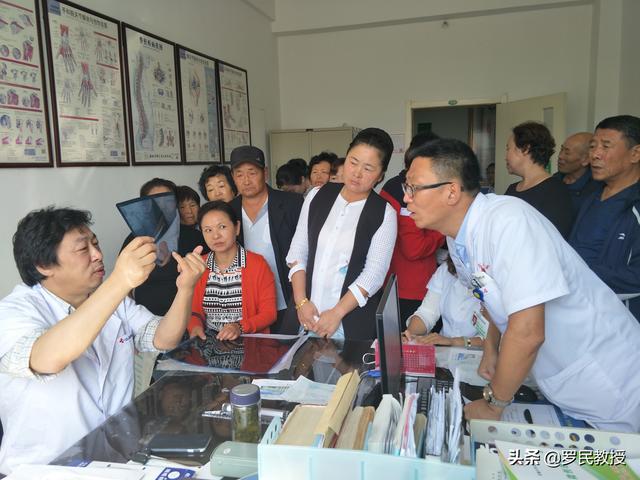
This "unmitigated disaster" is not a good thing!
This patient, who was later found to have problems, had severe cervical spondylosis and a severe lack of blood supply to the brain, and was already experiencing neck pain, headaches and dizziness, and lethargy and weakness before he was ever examined.
I believe that many people have this subconscious "after coming to the hospital, a short period of time do not want to come", if the patient did not check in a timely manner during the accompanying, just go home, it is likely to miss the time, once the condition continues to aggravate, cerebral infarction sudden attack that would be another twist and turn, if the rescue is not in time, it will be more likely to affect the rest of their lives. If the rescue is not timely, it will affect the rest of your life.
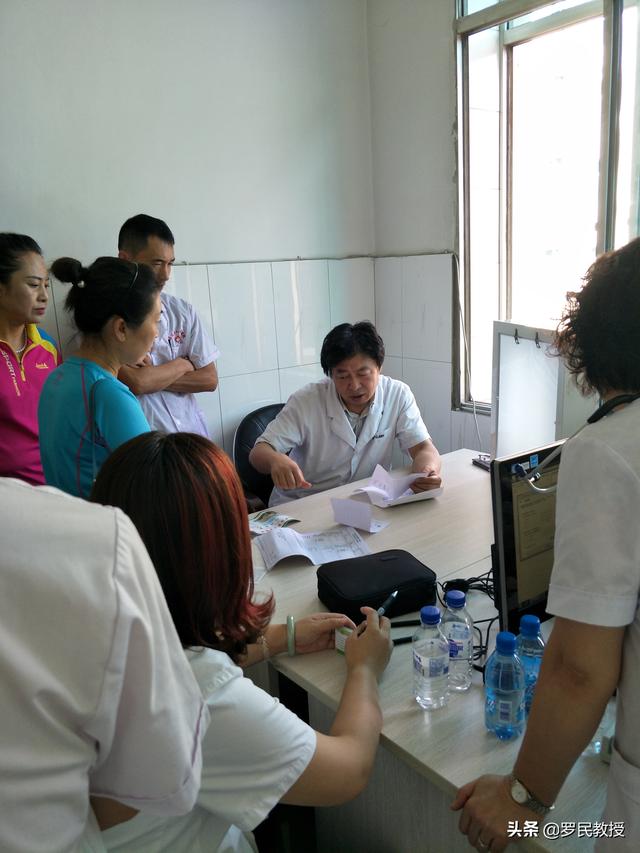
Life is one, everything else is zero.
Everyone is afraid of different things, but I believe that "life is always in the forefront", there are too many lives and deaths in hospitals, and disease is the synonym of tragedy and the "core" of everything.
Visiting the doctor - fear of discovering the disease.
Treatment - fear of poor results
Surgery - fear of treatment failure
Discharged from hospital - fear of relapse
Your body is your own. If you don't take care of it, who do you want to take care of it?
To such people, I just want to say "We'll wait for you at the hospital".
(I'm Luo Min, chief physician of a Grade 3A hospital, with more than 30 years of clinical experience in the first line of work of the "old" doctors, my efforts only to harvest everyone's approval, if my answer can help you, I hope you can like, attention, if you have any questions, you can comment or private message me, I will try to help everyone!)
This question and answer are from the site users, does not represent the position of the site, such as infringement, please contact the administrator to delete.
